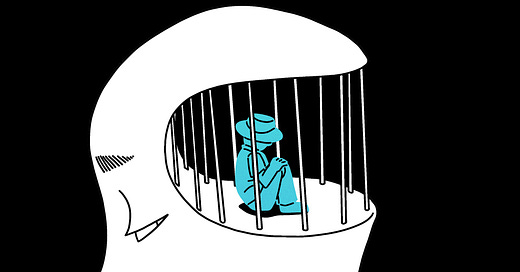5 Ways China Prevents Kids From Tech Addiction
"Digital Fentanyl" and the implications parents should draw from these Chinese policies.
Hello, good people! There was an interesting article in The Free Press a couple weeks ago titled, How China Got Our Kids Hooked on Digital Fentanyl. Worth reading…
Like most of you, I’m not a fan of the Chinese government. Authoritarian regimes aren’t my cup of tea. But that article got me thinking about the fascinating lengths China has taken to prevent screen-addiction in its citizens. These include:
They limit access to their most popular social media app, Douyin, to only 40-minutes per day. Douyin is the Chinese version of TikTok. Also of note, China owns TikTok. But they feature very different content for their own citizens. Douyin is far more intentional about producing aspirational emotions in its viewers than TikTok. Fascinating explanation of that here.
For those under 14, Douyin simply will not work between 10 pm and 6 am. The Chinese government thinks its kids need to sleep without any social pressure pulling them to stay up.
Douyin puts five-second pauses between some videos where they flash messages like “put down the phone,” or “work tomorrow.” Most of us presume that we aren’t susceptible to the “bottomless bowl” autoplay strategy, but these tactics are some of the most powerful for stoking greater consumption.
Douyin intentionally inserts educational content. Kinda like how I sneak spinach and broccoli into my kids’ morning smoothie.
China bans all video games in China, except for during a three hour period on the weekend. The Chinese government thinks unlimited access to addictive video games would breed a less motivated and hard working population.
China’s approach to screen addiction and social media speaks volumes about the destructive power of these novel technologies. Unlike the United States, where we prioritize the monetization of impulse and attention, the Chinese government prioritizes getting the most possible output from its citizens. China knows they won’t be able to wring much output out of a society of passive, soft screen-addicts. The U.S. government is less worried about this because our global dominance depends on only a very small elite class of producers. This will become even more the case as the age of automation revs forward.
My goal here is not to advocate for government imposed tech limits. I value freedom and personal responsibility. But parents would do well to wonder why China goes to such great lengths to make sure their children aren’t hooked on screens. The Chinese government has recognized just how powerful these modern temptations are and that, without hard limits, there is nothing to stop… well, this…
Are We Late to Catch On?
Our schools and communities have largely failed to understand the magnitude of our current tech revolution and how destructive its influence has been on our children. We might be able to prepare our children to thrive in modernity without full-scale government bans, but to do so will require us to actually recognize the scope of our issues and to adapt.
Our track record is mixed when it comes to this sort of intelligent adaptation. Cigarette smoking has declined by almost two-thirds since the first Surgeon General’s report warned of the consequences of smoking. But, since then, we’ve failed to appreciate that our current eating norms may be even more deadly than cigarettes. Likewise, our tech norms have stoked social animosity and implanted what Senator Ben Sasse called a terrifying “zombie-like passivity.” I begin my book with a description of this zombie-like state.
Meeting the Moment
Crazy as it sounds, most parents might do well to use the limits set by the Chinese government as a model for their own home.
Our younger generations stand no chance unless parents and schools provide good models and enforce strong limits. Our schools and other institutions must commit to strong parent education campaigns so that parents are armed with an understanding of our current moment and so they have a toolkit to help their kids thrive.
Freedom should not be equated with anarchy. Freedom and responsibility go hand in hand. This is why we don’t let five-year-olds pick what is for dinner or when they will go to bed.
To be capable of handling freedom in this age of constant manipulation, it requires good judgment, intentionality, and cultivated discipline. Without those qualities we are at the whim of our impulses. That is not freedom. It is the road to regret and helplessness.
Thank you for reading today and sharing with anyone who would find this valuable.
For more on limiting screens, check these resources out:
Take care and remember: life is too short to be normal.
Shane





